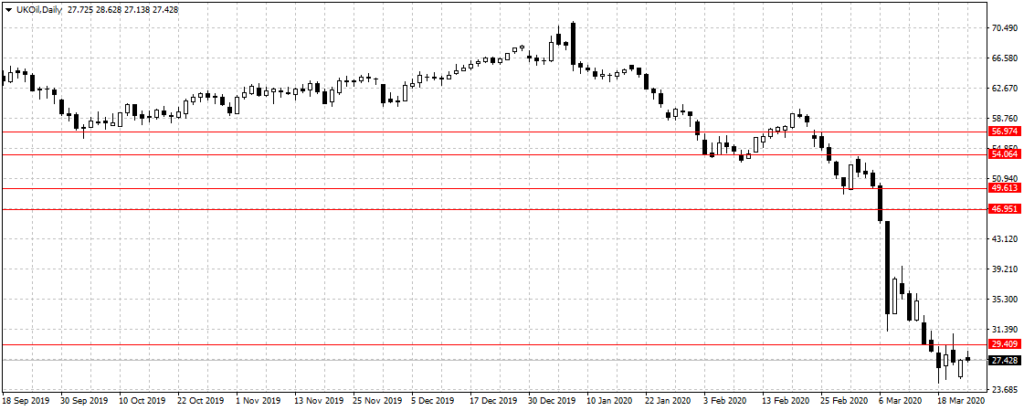Business
Oil Rebounds as Fed Announces Unlimited Bond-buying Program
- Oil Rebounds as Fed Announces Unlimited Bond-buying Program
Global oil prices rebounded on Tuesday following the Federal Reserves unprecedented stimulus move to curb the impact of coronavirus on the world’s largest economy.
The Brent oil, against which Nigerian crude is priced, rose from $25.10 per barrel on Monday to $28.62 per barrel on Tuesday before pulling back to $27.42 per barrel at around 4:45 pm Nigerian time.
 While the U.S. West Texas Intermediate (WTI) oil rose by $3 from $20.78 per barrel on Monday to $23.41 per barrel on Tuesday.
While the U.S. West Texas Intermediate (WTI) oil rose by $3 from $20.78 per barrel on Monday to $23.41 per barrel on Tuesday.
This was after the US Federal Reserves announced it would commence unlimited bond-buying program to support the financial industry and encourage borrowing in a move to stimulate growth across small businesses, sustain jobs and ensure price stability.
Again, it is uncertain how long the current sentiment would last given the level of global uncertainty and risk. However, it assures the markets that central banks have started going all out to protect the global economy against coronavirus tsunami.
The International Monetary Fund on Monday said the world should prepare for recession similar or worse than the 2008 global economic crisis.
Kristalina Georgieva, the Managing Director, IMF, said the global economy is already negative.
She said: “First, the outlook for global growth: for 2020 it is negative — a recession at least as bad as during the global financial crisis or worse. But we expect recovery in 2021. To get there, it is paramount to prioritise containment and strengthen health systems — everywhere.
“The human costs of the coronavirus pandemic are already immeasurable and all countries need to work together to protect people and limit the economic damage. This is a moment for solidarity.”
Oil dependent economies like Nigeria are cutting the 2020 budget while offering discounts to lure buyers to their abandoned cargoes. This is not different for the world’s largest exporter of the commodity, Saudi Arabia, as the Kingdom has already cut public finance for the year by $133 billion to accommodate changes in the global economy and national fundamentals.